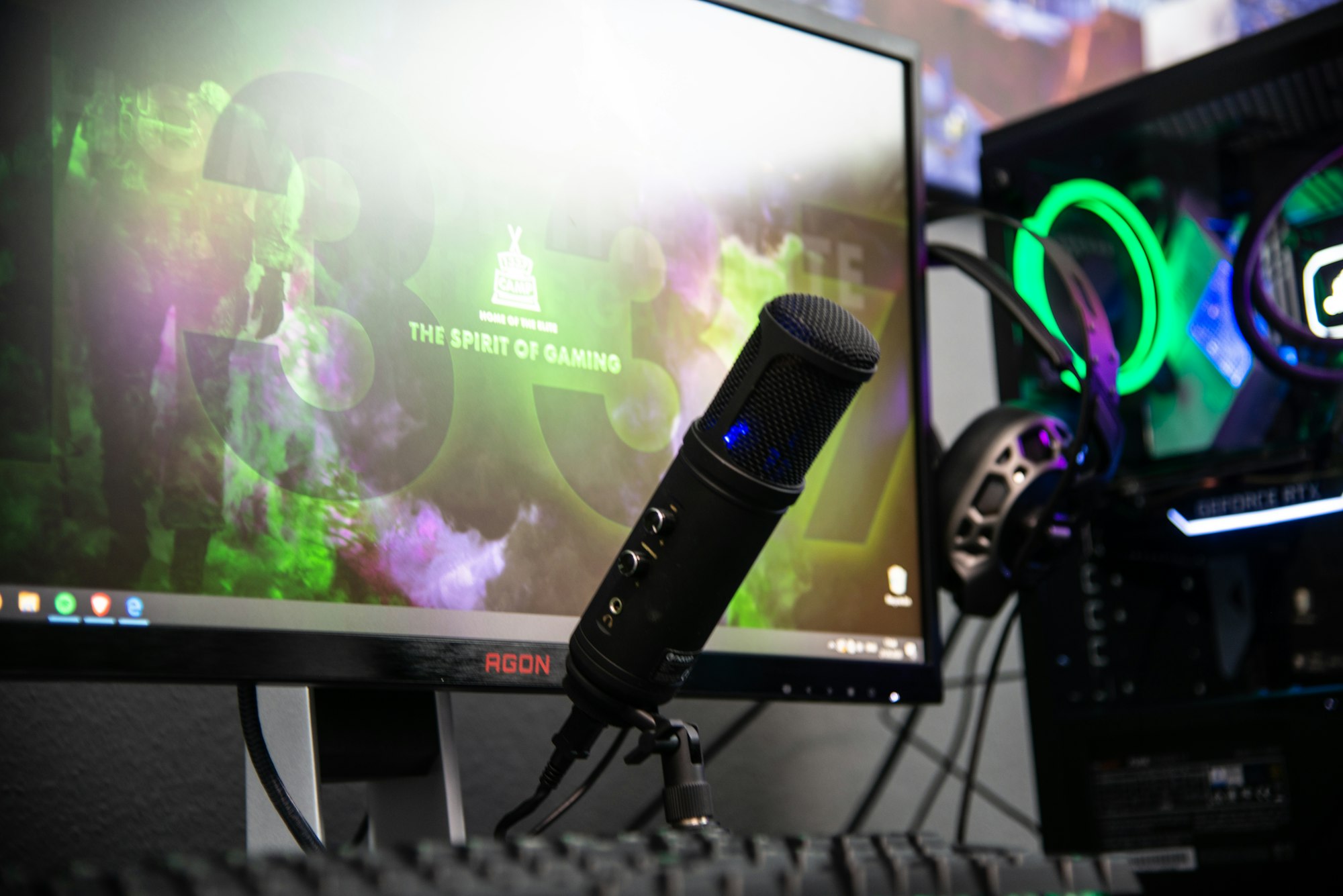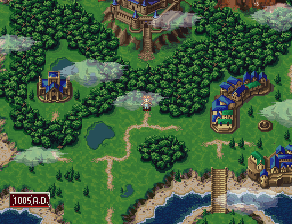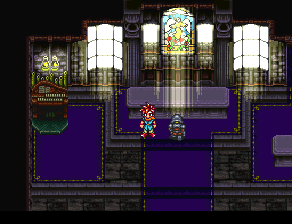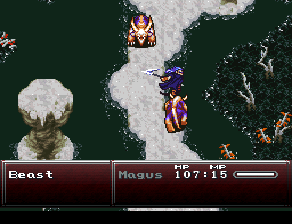Astrolabe 9: The Hugo Spreadsheet of Doom, fan sequels, and dat streaming life

The Hugo Spreadsheet of Doom
The Hugo Awards are among the most prestigious honours awarded to members of the science fiction and fan community. What makes them so special to me is that they’re voted on by WorldCon members. Anyone can become a WorldCon member, so this gives every day readers, gamers, content creators, and fans of all stripes a chance to be part of a larger conversation and have their voice heard.
I caught up with the always fascinating and endlessly brilliant Renay—a two-time Hugo winner herself as co-editor of Lady Business—to chat about The Hugo Spreadsheet of Doom. It’s a collaborative, community-based tracking and suggestion database that encourages all fans to submit their favourite works for Hugo consideration.
Aidan Moher: So the Hugo Spreadsheet of Doom is a crowd-sourced database of Hugo-eligible works and people—what prompted you to create it?
Renay: When SFF blogs were having very intense discussions about how homogenous the nominees looked and how to make what was ostensibly the most prestigious SFF award look more like the field it was representing, I wished for a centralized source of information about the Hugos but never thought, "Oh, I should do that." Before the spreadsheet there were lots of Hugo recommendation engines within blog culture. But as the science fiction and fantasy community was beginning to diversify across mediums like newsletters, Booktube, Instagram, and Twitter, it was harder and harder for the sources to reach people or be discovered at all.
And we can't forget that we had fascists—people still call them Sad Puppies, but I'm done with that term because they're fascists—get angry at marginalized creators for having the audacity to believe they could be eligible for the Hugo Awards. Literally, a white dude got his feelings hurt and asked a bunch of his fascist bros for help destroying the Hugo Awards because marginalized people started winning an award given by popular vote. It worked, too, due to the fact that the Hugos have historically been a local award driven by a couple thousand nominations in the most popular categories. I will say one thing for fascists: they know how to organize and rally around a cause, even if that cause is destroying a piece of fandom history.
I can't remember now what my thought process was other than I wanted to stop fighting about what was worthy enough to be nominated. I wanted to expand the nomination base beyond industry folks, fans who had been here for years and were rooted in the status quo, and angry fascists. I wanted to stop arguing about who had a "right" to be a finalist, and start being excited about all the amazing art people were making regardless of the finalist lists. The spreadsheets never close—they always remain as a record of the year and what people were interested in for people to discover later, and I think that's really valuable.
The Hugo Awards straddle a line between a fan award and an industry award, too, which makes participating in them intimidating to newcomers. I absolutely wanted to stay away from anything that looked like a slate and I knew that if it were only me doing the project I would run that risk. In the end, crowdsourcing among my pals who were also into the awards was the best compromise. I wasn't the only one to have the crowdsourcing idea, either—Didi Chanoch ran the same project via a wiki.
The Hugos have a lot of systemic issues that make participation difficult. Making the nomination process easier is one step in opening the doors to science fiction and fantasy fans in different fandoms, too—the wider the award goes, the more relevant we can make it to casual SFF fans. Making the spreadsheet was really rooted in my desire for accessibility, transparency, and love of art. I wanted to make this one slice of fandom I cared about more welcoming to the fan I was when I first got into the Hugo Awards.
AM: Beyond contributing to the spreadsheet, how can fans gets involved in raising awareness of creators and works that haven't traditionally been recognized by the Hugo voting community?
Renay: Promote, share, and be excited about things you love! The spreadsheet is a collective form of that, but it's still tucked away and is a little inside baseball unless you're curious enough to dig in and see what's what. The best way to get the word out about people doing cool stuff—no matter if the award category is for short fiction, editing, or podcasting—is to talk about it a lot. If someone is doing something cool the only way your networks are going to know about it is if you speak up to the point where you're sick of hearing yourself. That's the nature of social media and also our current social and political climate right now. The art and creativity on the margins is the most likely to be buried in the deluge of everything. Hugo voters, in my experience, are a pretty curious bunch. The institutions don't like change much—welcome to institutions run by people—but the voters themselves seem pretty willing to give things a look once they're on the ballot. I'm still trying to figure out how to turn Hugo voters, who probably love lots of interesting, diverse things, into Hugo nominators. Check back with me in a few years to see if I've cracked the code.
AM: A lot of people shrug off award season as nothing more than a popularity contest, but the spreadsheet feels like it's trying to push against that by encouraging voters to discover new works and creators. Why do you think awards like the Hugos are so important for writers and other creators?
Renay: I always disagree with this position that we should shrug off popularity contests, maybe because I'm a historian and popularity—or its opposite—is always relevant to a field if you want to understand it, know where it's been, and where it's going. Lists of eligible items, finalists, and winners are a snapshot in time. You can learn a lot from the things that are there, but also from the things that are absent. The empty spaces will tell a story, too, and I would like that story to be more robust. I want there to be more data so the SFF nerds getting into the Hugos in ten, twenty, thirty years, will be able to look back and see a more complete picture of this particular moment.
I can't speak for others, of course! I spend most of my time invested heavily in the fan categories and have no data on how much a Hugo Award changes the life of a short story, for example. But award nominations and wins have to drive interest and maybe even sales for people doing that type of work. Because the Hugo Awards are so long-running, too, they generate their own gravity. But the weight of the accomplishment is different to someone who only knows the Hugos as "that big SFF book award" and someone like me and you, who know we won our Hugos because our fellow fans nominated and voted for us when they liked the content we were putting into the world. I imagine the benefits of potential wider reach with a notable award attached to your work and the knowledge that your community likes what you're doing means that the Hugos, and awards like it, will continue to be important for a long time. Everyone likes those warm fuzzies.
I always love having a chance to talk with Renay about the Hugos—her insight is great, and there’s literally no one who’s more engaged with promoting positive change within the awards, and the whole of fandom itself. In addition to running The spreadsheet, Renay is also part of the Lady Business team and co-host of the Fangirl Happy Hour podcast with fellow Hugo-winner Ana Grilo.
You can easily contribute to the Hugo Spreadsheet of Doom, and join the rest of the community in celebrating 2020’s best projects and creators. (Because lord knows we need something to celebrate this year!)
Out & About
(Out & About is where I highlight my work around the web—some recent and some old favourites.)
If you’ve been reading Astrolabe for a while, you’re well aware that I’ve been livestreaming my LTTP play throughs on Twitch (give me a follow!). I learned the hard way that Twitch doesn’t keep VODs forever. RIP Avatar, Sailor Moon, Star Ocean, and the rest…
So, I’ve started a YouTube channel which will be the official archival site for all LTTP streams. You can find it at https://www.youtube.com/c/AidanMoher! Please click that big ol’ subscribe button for all the latest.
Here’s a highlight from the channel:
Some more:
- Blazing High Seas Adventure: The Sin in the Steel by Ryan Van Loan (Tor.com)
- Art of SFF: Charles Vess on Working with Ursula Le Guin on The Books of Earthsea (Tor.com)
- Please, Judge This Book By Its Cover (Uncanny Magazine)
LTTP—Chrono Trigger: Crimson Echoes (Super Nintendo, 2009)
( LTTP stands for “Late to the Party” and is a regular column where I let Twitter decide which retro game I’ll play for an hour. Do your worst, Twitter!)
It’s, uhh… no secret I’m a big Chrono Trigger fan. (I wrote a huge history of Chrono Trigger the people who made it earlier this year!) So, instead of going to the polls for LTTP this issue, I took the runner-up from Astrolabe #8’s poll for a spin.
Chrono Trigger: Crimson Echoes is a fan-sequel that attempts to tie together the stories from Chrono Trigger and its true sequel, Chrono Cross, in a way that’s more direct and, um, coherent? I’m a huge geek for big, ambitious fan hacks, and this is as big as they come.

Crimson Echoes kicks off five years after the events of Chrono Trigger’s good ending. Crono, Marle, and Lucca are attending an important diplomatic meeting between their kingdom of Guardia and the southern militaristic Porre nation. Things go awry, and quite by accident, the intrepid heroes are once against pitched through time. A screen swipe then brings us to the Age of Antiquity after the fall of Zeal, and the dark wizard Magus who continues his search for his sister, Schala.
The world has changed in a lot of interesting ways, including a new cathedral in 1005AD. Right off the bat it’s fun to explore a world that’s so familiar and still be surprised by what you find. The new locations, maps, and art are nice, and don’t feel out of place against those created for the original game. Characters start off at level one again, and are missing all their equipment, but the development team did a good job of still making them feel like grizzled veterans with a lot of time-hopping experience. Magus, in particular, has a much more diverse set of magic spells at his disposal, and starts the game with the impressively-named scythe, Erebos.

While the setting, new assets, maps, and scenarios are fun and nicely designed, I can’t extend the same courtesy to the writing. From the dialogue to the overall plotting, scene construction, and narrative, it just feels… off. Meticulous scientist Lucca’s running around with a prototype Time Egg for no reason, scenes constructed with Crono and co. on the outside looking in, and out-of-character dialogue all cause Crimson Echoes to stumble narratively.
At one point, Frog, who’s known for his strict loyalty to the Guardian throne and its hierarchy, says, “I hate that formal crap,” in reply to a soldier addressing him. It feels tremendously wrong coming from Frog, immediately threw me out of the story, and raised concerns for me about the quality of writing throughout the rest of the game.
It takes an immense level of fandom to create a fan-sequel as large and complex as Crimson Shadows, so I struggle to understand how that level of commitment and fandom could produce such an off-base read on one of Chrono Trigger’s most well-defined characters. Magus suffers from a similar issue. His personality is a bit closer to his Chrono Trigger self—brusque and standoffish—but his dialogue is verbose and biting, a far cry from the grim confidence and few spared words in the original game.
Perhaps the oddest change, however, is that Crono, the prototypical silent protagonist in Chrono Trigger, speaks, but seemingly without good reason. Through the first hour of the game, he offers little to the story, doesn’t drive the plot forward, and expresses a generic personality. If you’re going to change one of the fundamental narrative elements of a classic game, you’d better have a good reason to do so, and I didn’t see any benefit to making Crono a speaking character.

It’s clear a lot of love and effort went into Crimson Echoes, and for the most part I’m impressed with what I’ve played, and curious to continue the experience. Chrono Trigger and Chrono Cross are vastly different games narratively, so the idea of trying to marry them in a cohesive, sensible manner is… ambitious. The general writing in the first hour doesn’t give me a lot of confidence the team pulled it off, but just the idea of re-exploring the Chrono Trigger world, complete with new locations, dungeons, etc. is compelling to me as someone who’s beat the original countless times.
You can check out my LTTP playthrough in the video above, or by visiting my new YouTube channel where I archive all my LTTP livestreams.
Recommended Reads
Havenfall by Sara Holland
I’m a huge sucker for portal fantasy, and Sara Holland’s Havenfall puts a fun twist on the formula that gives new life to the old dog. Instead of sending its erstwhile protagonist Maddie off to the fantasy realms of Byrn and Fiordenkill, Havenfall takes place largely at an inn here on Earth that shares a name with the book. Havenfall sits at a hub of portals between the known worlds, and when a murder occurs at a peaceful gathering of delegates, Maddie must step up to protect the inn, solve a crime, and learn more about herself and the residents of Havenfall than she ever imagined. Holland’s writing is crisp, her imagination wonderful, and the pages just fly by.
Quest Markers
(Quest Markers is a collection of the coolest stuff I’ve read around the web lately.)
- Read Walter Mosley’s Incredible Speech From Last Night’s National Book Awards (Lithub)
- From Xenogears To Xenoblade: The History Of Monolith Soft (Kotaku)
- The Healing Power of ‘Steven Universe’ (New York Times)
- In Praise Of Anti-Realism In Video Games (Uproxx)
- Gideon, Harrow, and the Value of Problematic Relationships in Fiction (Tor.com)
- How 'Hades' Actors Made the Internet Horny for Their Voices (Vice)
- Book Insights — Mass Market edition (Tim Akers)
- Nostalgic GIFs of Everyday Life In Japan Animated by Yuuta Toyoi (Spoon & Tamago)
- The Cyberpunk 2077 Review Drama (Kotaku)
- Twitter: R.L. Stine wins R.L. Stine Creative Writing Award for third straight year, raising concerns of nepotism
- Cree video game streamers create space for Indigenous gaming community (CBC)
- Manga and Anime in Which Nothing Bad Happens (Tor.com)
End Step
Thanks for stopping by! Whether you take place in the Hugos or not, this is the time of year to reflect about all the great content you’ve consumed, and I’d love to hear what you loved. Drop me a line on Twitter and let me know!
Support
There are lots of ways to support Astrolabe and my other work. Check ‘em out!
- Patreon: http://patreon.com/adribbleofink
- Ko-fi: http://ko-fi.com/aidanmoher
- Paypal: http://paypal.me/AidanMoher
Keep In Touch
Enjoy Astrolabe? Want more SFF and retro gaming goodies? You can find me on Twitter and my website.
Credits
Astrolabe banner photo by Shot by Cerqueira on Unsplash

